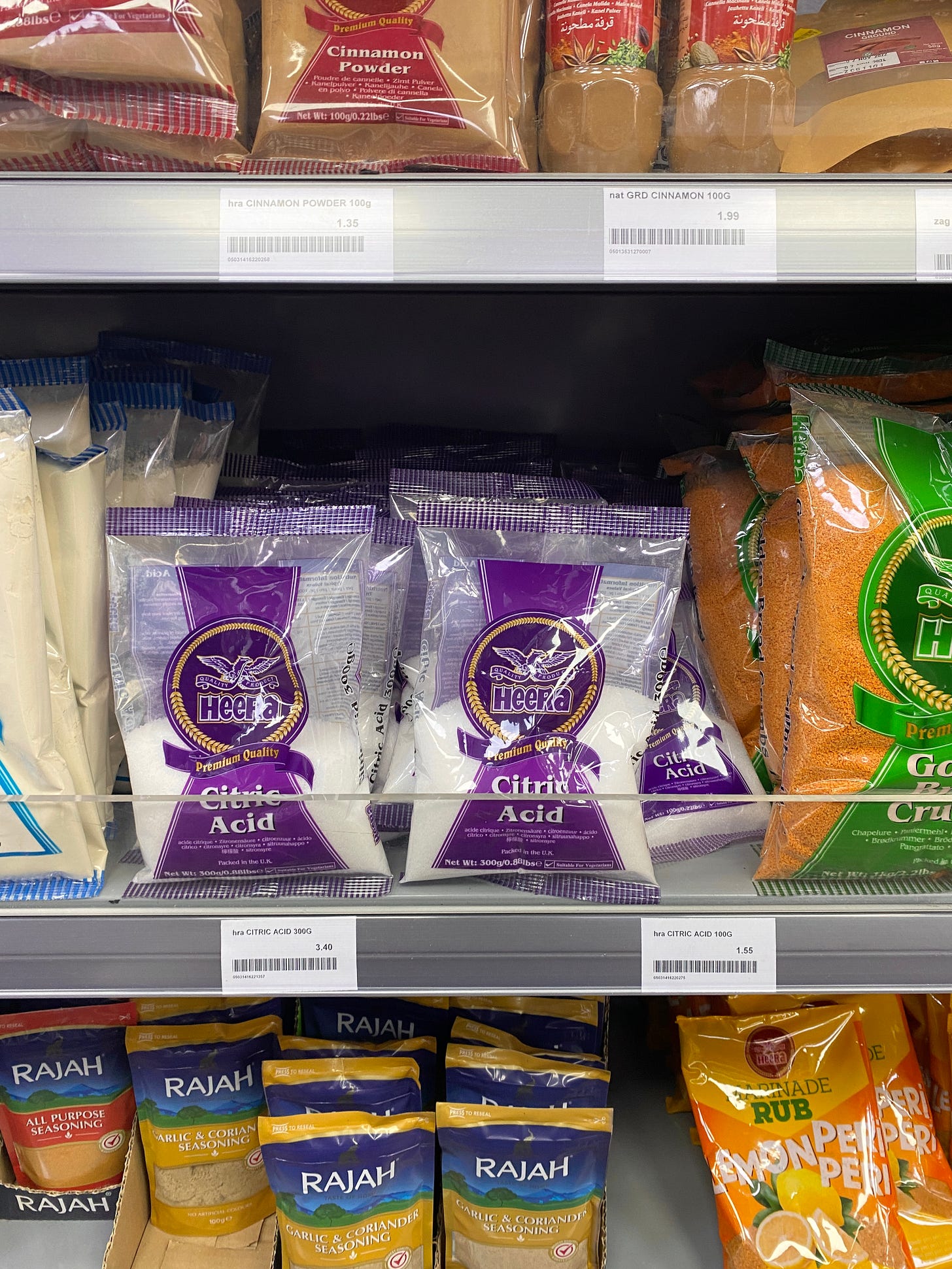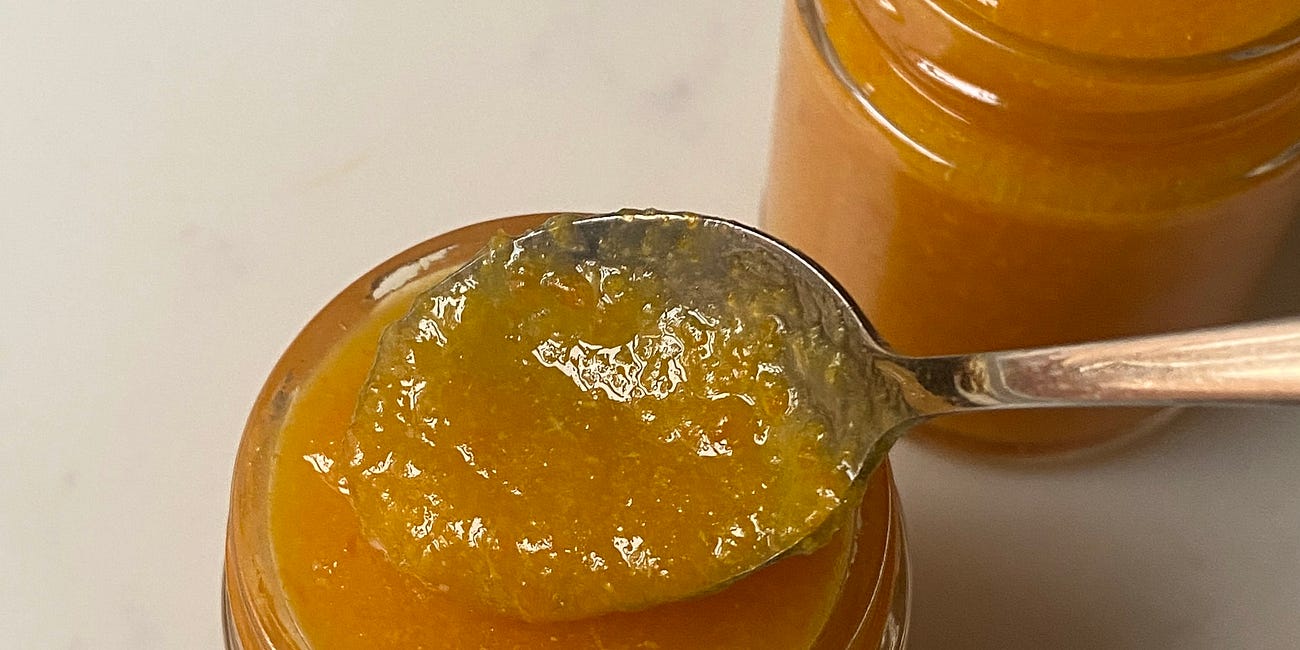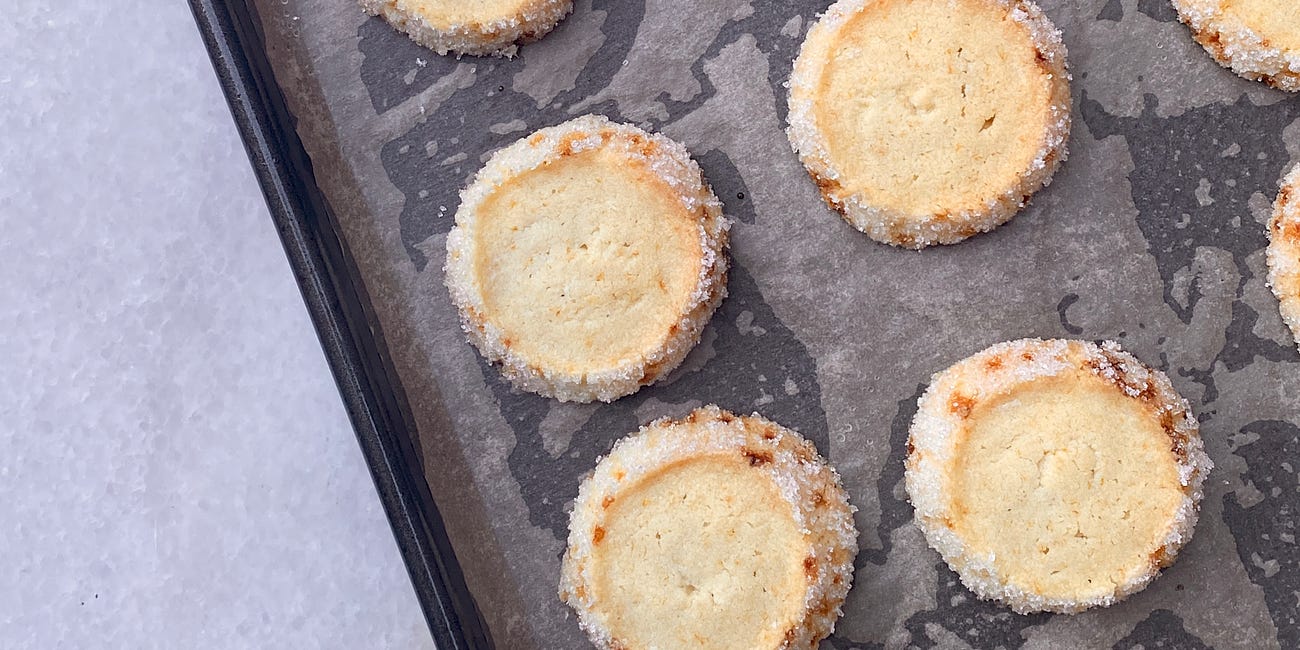Citric Acid
Musings about possibly the most underrated ingredient
Let me start by saying, I am a huge fan of citric acid. I’m a sour sweets girl through and through, so it’s only natural that something so eye-wateringly sour would appeal to me. But it’s not just the fact that it reminds me of a bag of Tangfastics that makes me a fan, it’s the versatility, the convenience and, let’s be honest, the price. Who can afford to be buying endless lemons in this economy?
First of all, what is it? As the name would suggest, it’s an acid that is found in naturally citrus fruits such as lemons, limes and oranges. It comes in a granulated crystal form and is used widely as a preservative and antioxidant in many products, including foods and cosmetics. I’m no cosmetologist though, so we’ll just stick to its uses in food.
But what does it actually do? Well, first of all, it makes things sour. I often use it as a flavour enhancer. Jam a bit too sweet? Add a bit of citric acid. Orange curd doesn’t have enough zing? Add a bit of citric acid. I could go on and on, but you get the idea. This is also really handy if you’re mixing curds into buttercream; having that extra tang means that even though it’s diluted the curd still packs a punch. Read more about making the perfect curd here. Not only does it add a delicious tartness, but it will also help your curd set firmer, which brings me onto its next use.
Citric acid is a natural thickening agent. If you’ve made jam before, you’ll notice that most recipes call for a squeeze of lemon juice - this helps to boost the natural pectin in the fruit and give you a firmer set, and the same applies to curds. I hate a runny curd! Although there are several steps to achieving the perfect curd, citric acid definitely helps, especially when making curds with less acidic fruits like oranges or raspberries.
It’s also a natural antioxidant meaning that it acts as a preservative, as well as stopping fruit from going brown, so for this reason it’s perfect when making compotes with fruits that naturally brown as they oxidise like peaches, apples and pears.
Now I know you’re thinking “lemon juice can just do all of this” and you’re absolutely right, but the joy of citric acid is that:
It’s cheap, about £2 per 100g (which will last you forever) as opposed to 30p per lemon.
It can be stored in the cupboard indefinitely and takes up virtually no space.
You can add it to your recipes without having to add any extra liquid.
You can use it in it’s crystal form to make a sherbert-y coating for biscuits, jellies etc.
Now, where to buy it? I buy mine at my local Indian supermarket but it’s also available in most Asian supermarkets; you’ll find it in the spice section or, of course, you can buy it online - just make sure you get the food grade kind and not the kind used to clean drains...
If you make a lot of my recipes, you’ll notice that I use citric acid regularly, but here are some of my favourites:
Mandarin Jam
In one of my previous jobs we spent hours segmenting citrus for jams, it was tasty but who really has time to faff about segmenting endless oranges? This jam recipe uses the entire mandarin, giving it the same slight bitterness of marmalade but the fresh fruitiness of jam. Boiling the mandarins whole removes some of the bitterness and softens the peel, …
Lemon Sablé
Lemon Sablé These little lemon biscuits are so simple but so tasty! The recipe calls for a lot of lemon zest but if you’re making a lemon biscuit, you want it to be lemony, right?! The sour lemon coating is tangy and sweet and adds a nice crunch to the outside of the biscuit; the whole thing is reminiscent of a sherbet lemon.






Hi! I was thinking about attempting to make apple curd. Do you think this would work and how much citric acid should be used?
Hey do you think adding citric acid to a lemon muffin/loaf batter would help improve the lemon flavour? Or would it just make it too sour? If so how much would you recommend adding :0